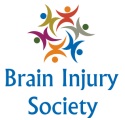
Severe brain injuries that cause lasting impairments are qualified for disability benefits. Meeting the Social Security Administration’s (SSA) eligibility requirements means you must satisfy both the medical and the technical criteria in order to receive benefits.
Qualifying Brain Injuries
There are a number of brain injury types that qualify for Social Security Disability (SSD) benefits, and the SSA actually does not distinguish between them when it comes to evaluating a disability claim. While a definitive diagnosis of the form of brain injury is required for approval, the SSA reviews all brain injuries under the listing for cerebral trauma, which appears in Section 11.08 of the Blue Book.
Traumatic Brain Injury is the most common form of the condition, but other types of brain injuries can also qualify you for SSD benefits, including Diffuse Axonal Injury, Coup-Contrecoup Injury, and Penetrating Brain Injuries, among others.
Meeting the Brain Injury Listing
The SSA uses Blue Book listings to review the medical records of applicants. The Blue Book is a manual of disabling conditions that also includes the evidence required for proving disability with each listed condition. The Brain Injury listing in Section 11.08 references other listings, dependent upon the symptoms your brain injury causes. Any of the following listings may apply in your case:
- Section 11.02 – Convulsive epilepsy
- Section 11.03 – Non-convulsive epilepsy
- Section 11.04 – Central nervous system vascular event (stroke)
- Section 12.02 – Organic mental disorders
The SSA may compare your medical records and your symptoms to each of these listings in an effort to establish your eligibility. Each listing requires diagnostic evidence of symptoms, or formal evaluation results that show you experience the symptoms at the severity level necessary to prevent you from maintaining gainful employment.
Applying for Benefits
When you apply for benefits, you will be considered for both Social Security Disability Insurance (SSDI) and Supplemental Security Income (SSI). Each of these programs requires you meet the medical eligibility criteria for SSD benefits. Both also have technical or financial eligibility rules that must be met.
- SSDI is designed to provide benefits to disabled workers who paid Social Security taxes during their previous employment. Learn more about SSDI here: http://www.ssa.gov/dibplan/dqualify.htm
- SSI, on the other hand, has no work history requirements, but does have very strict income and financial resource or asset limitations. This is because SSI is a need-based program. Learn more about SSI here: http://www.ssa.gov/ssi/
You can apply for benefits online or at your local SSA office. Online application is typically the fastest method for submitting a claim. Applying at the local office requires you schedule an appointment and participate in an interview with an SSA representative. Regardless of how you apply, you should be prepared to provide detailed information on your work history, education, medical condition, and your financial situation.
It is not uncommon for initial disability applications to be denied. In fact almost two-thirds of disability applications are denied initially. If you are denied, there is an extensive appeals process through you can go through in order to obtain the benefits you deserve.
About the Author:
This guest post was contributed by Ram Meyyappan of Social Security Disability Help
